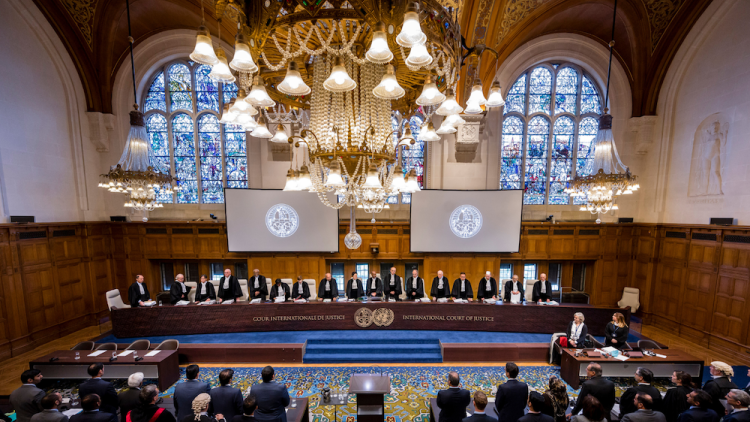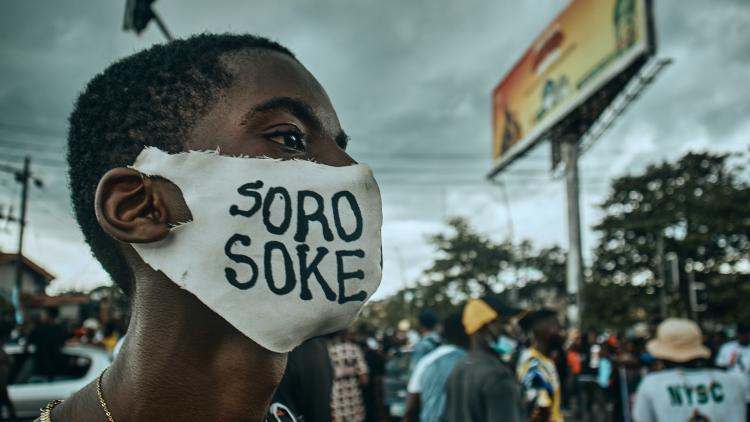BA Law and...


Key information
- Duration
- 3 or 4 years
- Start of programme
- September
- Attendance mode
- Full-time
- Location
- On Campus
- Fees
-
Home: £9,535
International: £22,870 - Entry requirements
-
AAA
Contextual: ABB
Applicants with standard qualifications such as A levels, IB or other high school qualifications considered equivalent to A levels) are not required to take the Law National Aptitude Test (LNAT), but the School of Law will consider making lower offers ( eg AAA, AAB, ABB or 37, 36, 35 in International Baccalaureate) to candidates who do so and perform promisingly in the test.
We also encourage applicants with non-standard qualifications (including Access to Higher Education Diploma and Foundation Courses) all of whom are required to take the LNAT. We also encourage students taking the SOAS Foundation Course at IFCELS to apply. Students offering level 3 BTEC qualifications either on their own or in combination will be required to take the LNAT.
-
See undergraduate entry requirements and English language requirements for international and alternative entry requirements.
Course overview
The SOAS Law combined honours degree produces highly skilled, civic minded and critically engaged graduates, who can effectively contribute to their communities and societies through the knowledge and skills gained on this course.
In an increasingly interconnected world, law is no longer the preserve of single jurisdictions as legal issues are no respecters of national borders. A SOAS Law degree addresses this need by providing our students with an educational experience that equips you with a distinctive set of skills far beyond what is offered by most traditional Law Schools.
The nature of the Combined Honours degree enables you to develop a specialist pathway for yourself by studying a second subject.
The BA Law Combined Honours Degree is aimed primarily at those not wishing to become practicing lawyers, but provides students with a wide range of analytical and transferable skills and is suitable for any profession in which a non-specialised degree is required.
Why study Law Combined Honours at SOAS?
- SOAS is ranked 14th in the UK for Law (QS World University Rankings 2025)
- We're ranked 12th for Academic Reputation (QS World University Rankings 2025)
- Our research publications have been rated first in the UK - and our School of Law rated sixth in the UK - in the Research Excellence Framework (REF) 2021.

Use our combined courses tool to see a breakdown of course structure
Key information set data
Teaching and learning
Modules are taught through a combination of lectures and tutorials, usually two hours lecture and one hour tutorial a week. Sometimes, one follows the other in a three-hour bloc. Sometimes, the tutorial is at a different time or on a different day than the lecture.
Tutorials are sessions in which students are expected to present reports and take a lead in discussions.
Depending on the size of the class, some intermediate and final year level modules are less strictly divided between a formal lecture and a tutorial discussion, and instead, the topic is briefly introduced by the lecturer, followed by a seminar discussion.
Contact hours
All full-time undergraduate programmes consist of 120 credits per year, in modules of 30 or 15 credits. They are taught over 10 or 20 weeks. The programme structure shows which modules are compulsory and which optional.
As a rough guide, 1 credit equals approximately 10 hours of work. Most of this will be independent study. It will also include class time, which may include lectures, seminars and other classes. Some subjects, such as learning a language, have more class time than others. In the Department of Law, many undergraduate modules have a weekly two hour lecture or seminar. Some modules may also had an additional hour of smaller group classes weekly or fortnightly.
The Independent Study Project (ISP)
This can be taken by final-year students only. Like the Special Subject dissertation, its aim is to provide an opportunity for students to conduct original historical research on their own initiative, to engage in in-depth analysis of particular subjects and to use a range of primary historical sources. It involves no formal classes and is assessed by a single 10,000-word dissertation (including notes but excluding bibliography).
Learning resources
SOAS Library is one of the world's most important academic libraries for the study of Africa, Asia and the Middle East, attracting scholars from all over the world. The Library houses over 1.2 million volumes, together with significant archival holdings, special collections and a growing network of electronic resources.
Fees and funding
Fees for 2025/26 entrants per academic year
| Programme | Full-time | |
|---|---|---|
| Home students | Overseas students | |
| BA, BSc, LLB | £9,535 | £22,870 |
| BA/BSc Language year abroad | £1,385 | £11,430 |
See undergraduate fees for further details.
Employment
SOAS Law graduates leave SOAS as civic minded and critically engaged individuals who can effectively contribute to their communities and societies. With a thorough understanding of the legal dimensions underlying many of our global challenges today, our Law students are valued by employers due to their analytical skills, specialist knowledge, and global perspective.
Recent graduates have been hired by:
- Allen & Overy
- PwC LLP
- BLM Law
- BloombergNEF
- British Medical Association
- Clifford Chance
- DAC Beachcroft LLP
- Department for Work and Pensions
- EY
- HM Treasury
- Latham & Watkins
- Legal Cheek
- Linklaters
- Simpson Millar Solicitors
- The Economist
- Travers Smith
- United Nations
- Vodafone
- World Cancer Research Fund
Find out about our Careers Service.










